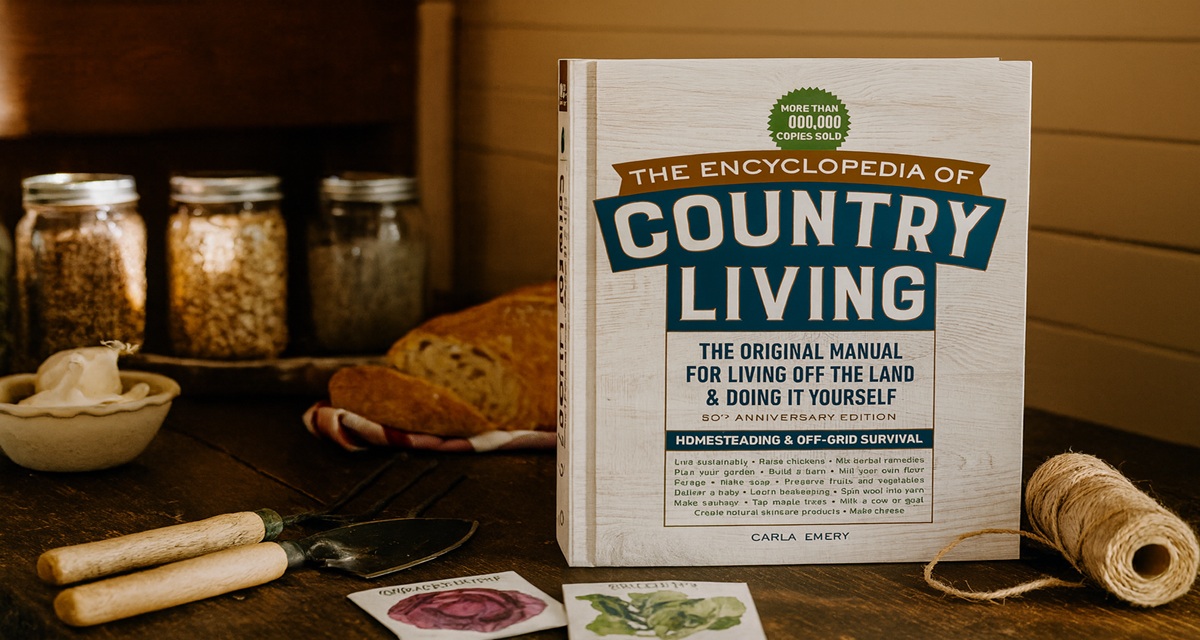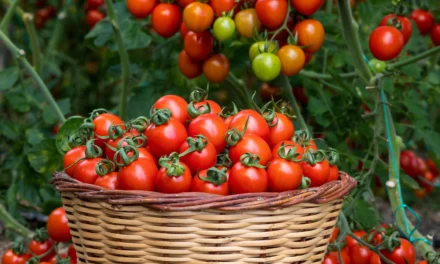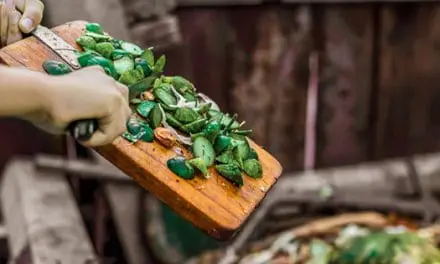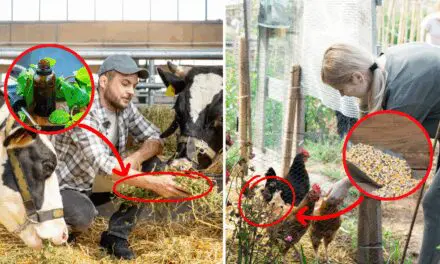When it comes to homesteading books, few titles are as well-loved—or as frequently recommended—as The Encyclopedia of Country Living by Carla Emery. For decades, this book has been passed between families, tucked into farm kitchens, and gifted to those just starting their self-sufficiency journey. And there’s a reason it holds legendary status in the homestead community.
This book isn’t just another guide—it’s often described as the “homesteader’s Bible.” Newcomers say it gives them the confidence to get started, while seasoned farmers admit they still discover something new every time they open its pages. It bridges generations, reminding us that many of the skills we call “self-sufficiency” today were once just part of everyday life.
A Treasure Trove of Knowledge
At over 900 pages, this isn’t just a book—it’s a complete reference library. Inside, you’ll find guidance on nearly every aspect of self-sufficient living: gardening, livestock care, food preservation, foraging, soap-making, natural remedies, and even instructions for building simple tools. Readers often describe it as “having a neighbor from another century sitting down to share everything they know.”
What makes it stand out is the sheer depth of detail. It doesn’t just tell you to can tomatoes; it explains the entire process, gives tips for avoiding mistakes, and even touches on how our ancestors managed without modern equipment. That blend of practical steps and historical perspective makes it a rare gem in today’s world of bite-sized advice.
Unlike many modern guides, The Encyclopedia of Country Living doesn’t romanticize homesteading. It tells you what works, what doesn’t, and what you’ll actually need when you’re living closer to the land. That level of honesty is one reason so many readers come back to it again and again.
For example, if you’ve ever wondered whether making your own soap or butter is realistic for your situation, Emery provides both the how-to and the candid reality of the work involved. That honesty helps readers make informed choices rather than chasing unrealistic ideals.
Why Homesteaders Love It
- Comprehensive: Few books cover as much ground. From starting a garden to butchering a hog, it’s all in here.
- Practical wisdom: Every page reflects Carla Emery’s hands-on experience, not just theory.
- Time-tested: The book has been in print since the 1970s, and each edition has been updated to stay relevant.
- Accessible writing: Emery’s warm, conversational style makes even the most intimidating projects feel approachable.
Beyond these points, there’s also a sense of companionship that comes with reading it. Emery’s voice feels personal, almost like a trusted mentor guiding you through each step. Many homesteaders share that they feel less alone in their journey when they read her words, as though someone who has “been there” is cheering them on.
For many homesteaders, this book is not just a guide—it’s a companion. People return to it season after season, whether they’re planting a new crop, learning a new skill, or simply looking for inspiration.
Another reason for its popularity is its adaptability. Whether you have a sprawling acreage or a modest suburban backyard, the book offers something practical for every scale. It proves that self-sufficiency isn’t about perfection, but about making steady, intentional choices.
A Must-Have for Self-Sufficiency
If you’re building a homestead library, The Encyclopedia of Country Living belongs on the top shelf. Even if you already own specialized books on gardening, livestock, or food storage, this one ties it all together. It’s a reminder of how much is possible with your own two hands, a patch of land, and a willingness to learn.
The book also shines as an emergency reference. Many homesteaders keep it on hand not just for daily living, but also as a backup guide if modern conveniences fail. With its broad scope, it covers skills that could keep a family thriving even in uncertain times, making it a true survival tool as well as a homesteading guide.
In many ways, this book represents the very heart of homesteading: resilience, resourcefulness, and the joy of doing things yourself. Whether you’re on a few acres or just starting out in a backyard garden, it will meet you where you are and grow with you.
Ultimately, The Encyclopedia of Country Living is more than information—it’s inspiration. Every page nudges you closer to a lifestyle of independence, sustainability, and deeper connection with the land. For that reason, it continues to hold its place as one of the most beloved homesteading books of all time.
Pros & Cons of The Encyclopedia of Country Living
Pros:
- Incredibly comprehensive—covers nearly every aspect of self-sufficient living
- Honest, practical advice from decades of real experience
- Conversational, encouraging writing style
- Useful for both beginners and experienced homesteaders
- Works as both a daily guide and a long-term reference
Cons:
- Very large and heavy—some may find it overwhelming at first glance
- Older sections may feel a little dated compared to modern tools and methods
- Not as specialized as books that focus solely on one subject (e.g., gardening or poultry care)
Buy The Encyclopedia of Country Living
Modular Backyard Power Plant Review
How to Take Care of Your Livestock When They Are Sick (Video)
The Lost SuperFoods: Book Review
The Forager’s Guide To Wild Foods: Book Review














